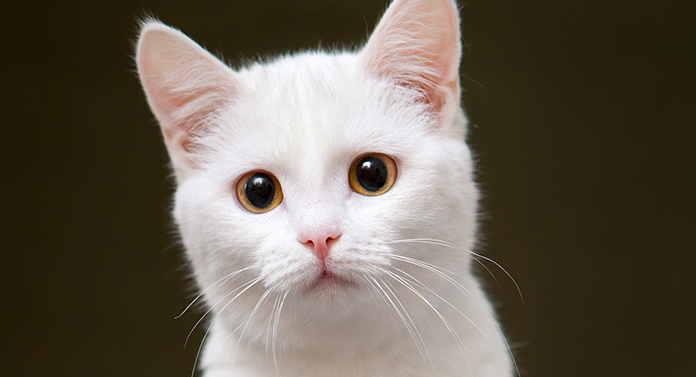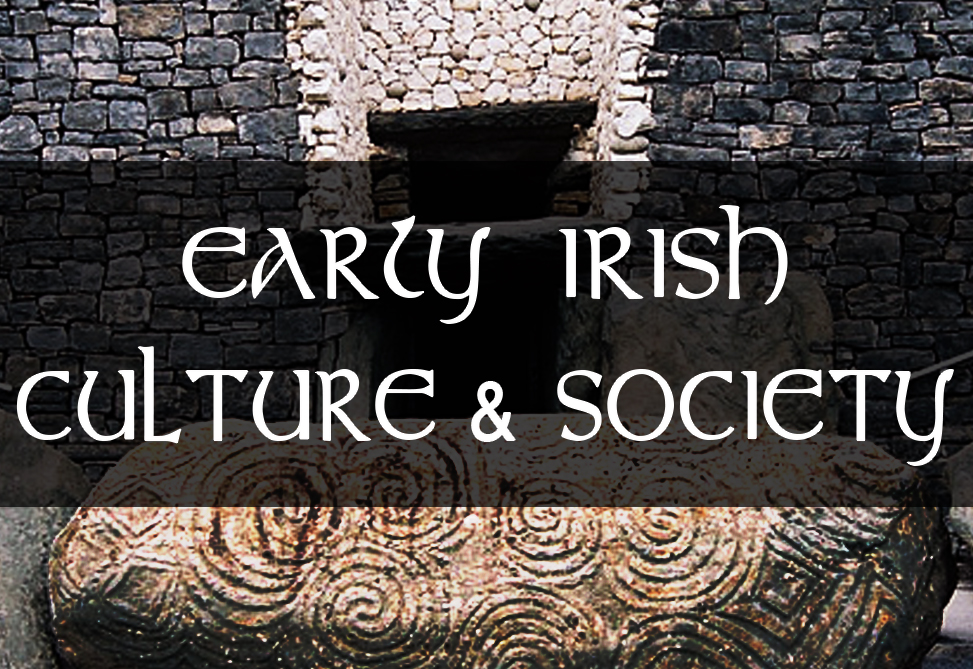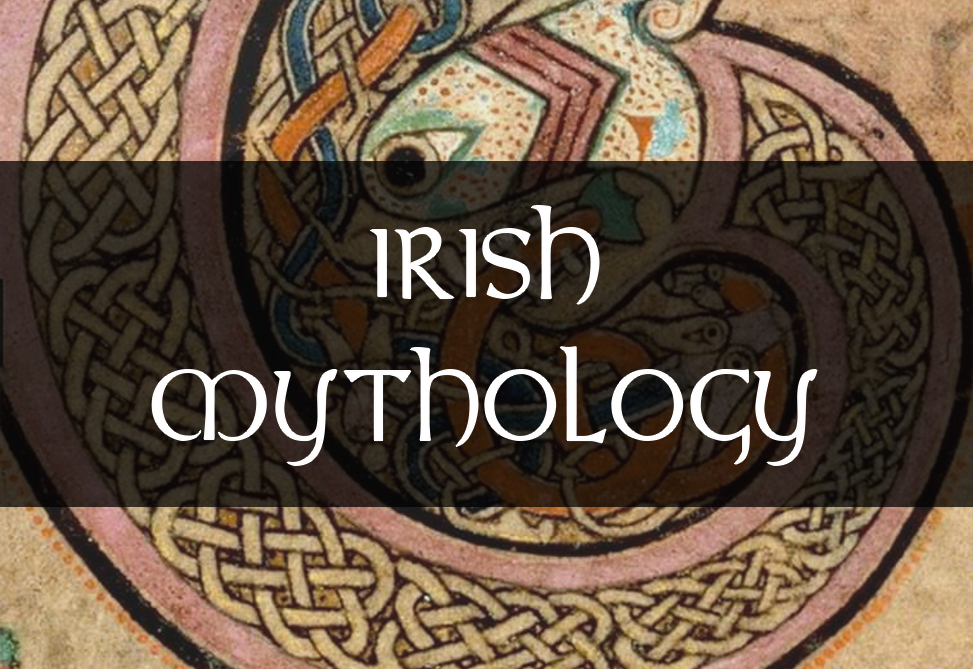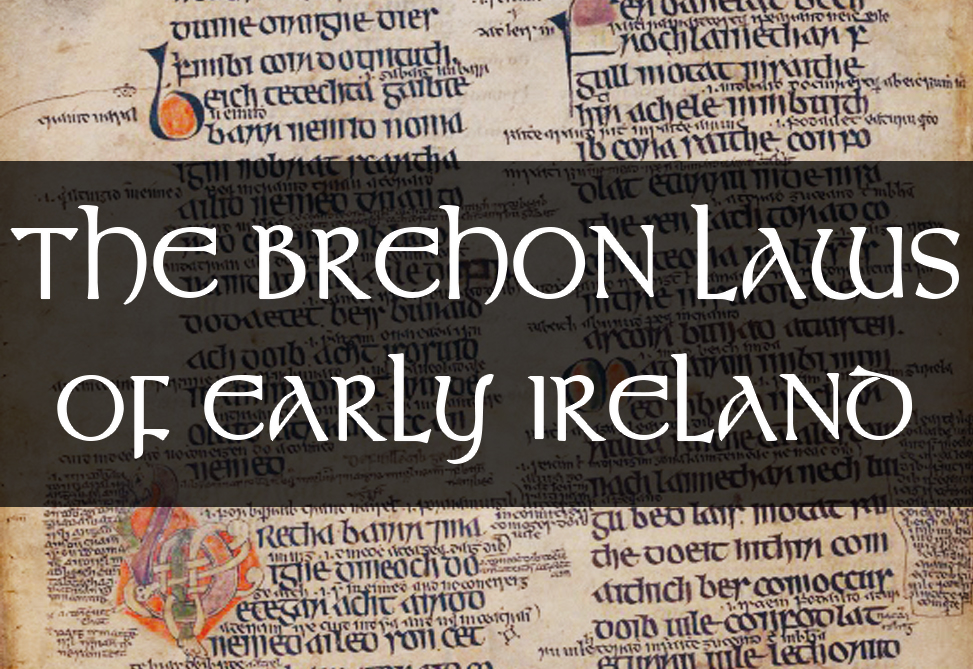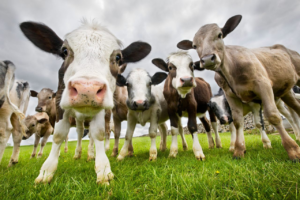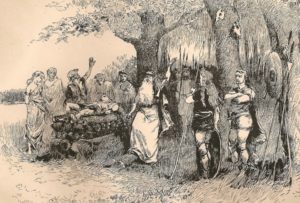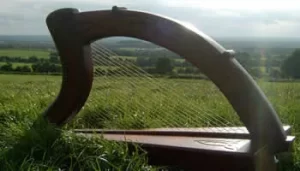Pangur Bán or “White Pangur” is an anonymous poem written in Old Irish around the 9th century by an Irish monk in praise of his white cat named Pangur (bán means ‘white’ in the Irish language).
To read more about the history and origins of this poem check out:
The White Cat and the Monk – Pangur Bán, a 9th C. Old Irish Poem.
There have been various translations of the original Irish poem, and below you will find five versions.
You can download a .pdf document containing the original and the translations from the Brehon Academy Members Library.
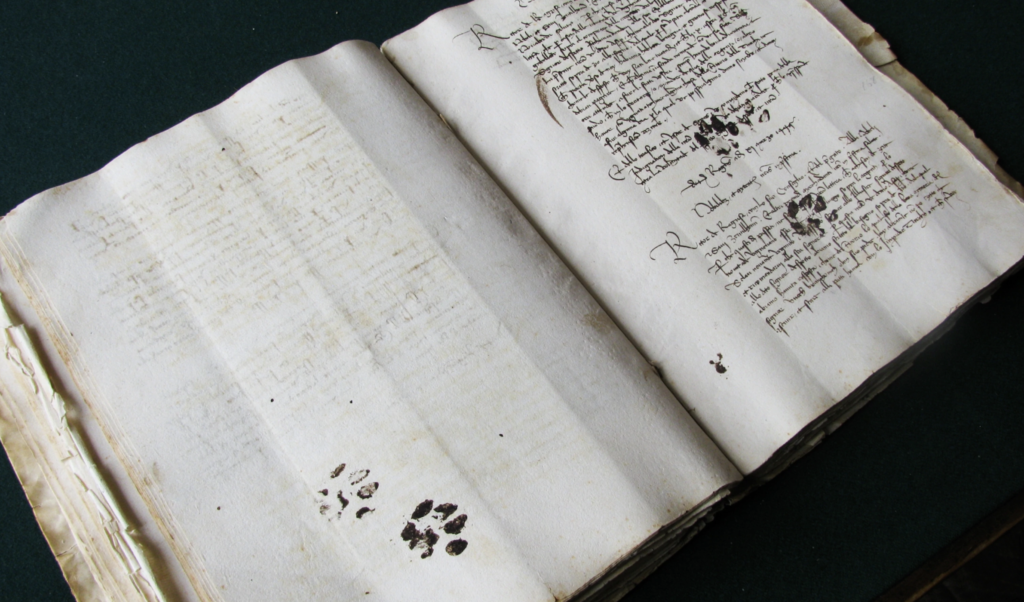
Cat Paw Prints on a 15th C. Medieval Manuscript, found in Dubrovnik, Croatia, University of Sarajevo.
Pangur Bán | Original Irish Version
Messe ocus Pangur Bán,
Anonymous.
cechtar nathar fria saindán;
bíth a menma-sam fri seilgg,
mu menma céin im saincheirdd
Caraim-se fos, ferr cach clú,
oc mu lebrán léir ingnu;
ní foirmtech frimm Pangur bán,
caraid cesin a maccdán.
Ó ru·biam — scél cen scís —
innar tegdais ar n-óendís,
táithiunn — díchríchide clius —
ní fris tarddam ar n-áthius.
Gnáth-húaraib ar gressaib gal
glenaid luch inna lín-sam;
os mé, du·fuit im lín chéin
dliged n-doraid cu n-dronchéill.
Fúachid-sem fri frega fál
a rosc anglése comlán;
fúachimm chéin fri fégi fis
mu rosc réil, cesu imdis,
Fáelid-sem cu n-déne dul
hi·n-glen luch inna gérchrub;
hi·tucu cheist n-doraid n-dil,
os mé chene am fáelid.
Cía beimmi amin nach ré,
ní·derban cách ar chéle.
Maith la cechtar nár a dán,
subaigthius a óenurán.
Hé fesin as choimsid dáu
in muid du·n-gní cach óenláu;
du thabairt doraid du glé
for mu mud céin am messe.
Pangur Bán – Pangur the White
Kuno Meyer’s Literal Translation
I and my white Pangur
Have each his special art:
His mind is set on hunting mice,
Mine is upon my special craft.
I love to rest better than any fame!
With close study at my little book;
White Pangur does not envy me:
He loves his childish play.When in our house we two are all alone
A tale without tedium!
We have sport never-ending!
Something to exercise our wit.At times by feats of derring-do
A mouse sticks in his net,
While into my net there drops
A difficult problem of hard meaning.He points his full shining eye
Against the fence of the wall:
I point my clear though feeble eye
Against the keenness of science.He rejoices with quick leaps
When in his sharp claw sticks a mouse:
I too rejoice when I have grasped
A problem difficult and dearly loved.Though we are thus at all times,
Neither hinders the other,
Each of us pleased with his own art
Amuses himself alone.He is a master of the work
Which every day he does:
While I am at my own work
To bring difficulty to clearness.
Pangur Bán – Pangur the White
Séamus Heaney Translation
Pangur Bán
Messe ocus Pangur Bán,
cechtar nathar fria saindán;
bíth a menma-sam fri seilgg,
mu menma céin im saincheirdd
Caraim-se fos, ferr cach clú,
oc mu lebrán léir ingnu;
ní foirmtech frimm Pangur bán,
caraid cesin a maccdán.
Ó ru·biam — scél cen scís —
innar tegdais ar n-óendís,
táithiunn — díchríchide clius —
ní fris tarddam ar n-áthius.
Gnáth-húaraib ar gressaib gal
glenaid luch inna lín-sam;
os mé, du·fuit im lín chéin
dliged n-doraid cu n-dronchéill.
Fúachid-sem fri frega fál
a rosc anglése comlán;
fúachimm chéin fri fégi fis
mu rosc réil, cesu imdis,
Fáelid-sem cu n-déne dul
hi·n-glen luch inna gérchrub;
hi·tucu cheist n-doraid n-dil,
os mé chene am fáelid.
Cía beimmi amin nach ré,
ní·derban cách ar chéle.
Maith la cechtar nár a dán,
subaigthius a óenurán.
Hé fesin as choimsid dáu
in muid du·n-gní cach óenláu;
du thabairt doraid du glé
for mu mud céin am messe.
White Pangur
Pangur Bán and I at work,
Adepts, equals, cat and clerk:
His whole instinct is to hunt,
Mine to free the meaning pent.
More than loud acclaim, I love
Books, silence, thought, my alcove.
Happy for me, Pangur Bán
Child-plays round some mouse’s den.
Truth to tell, just being here,
Housed alone, housed together,
Adds up to its own reward:
Concentration, stealthy art.
Next thing an unwary mouse
Bares his flank: Pangur pounces.
Next thing lines that held and held
Meaning back begin to yield.
All the while, his round bright eye
Fixes on the wall, while I
Focus my less piercing gaze
On the challenge of the page.
With his unsheathed, perfect nails
Pangur springs, exults and kills.
When the longed-for, difficult
Answers come, I too exult.
So it goes. To each his own.
No vying. No vexation.
Taking pleasure, taking pains,
Kindred spirits, veterans.
Day and night, soft purr, soft pad,
Pangur Bán has learned his trade.
Day and night, my own hard work
Solves the cruxes, makes a mark.
Pangur Bán – Pangur the White
W.H. Auden Translation
A much shorter version of the poem consisting of just ten lines was scribed by the poet Wystan Hugh Auden”
Pangur, white Pangur, How happy we are
W.H. Auden
Alone together, scholar and cat
Each has his own work to do daily;
For you it is hunting, for me study.
Your shining eye watches the wall;
My feeble eye is fixed on a book.
You rejoice, when your claws entrap a mouse;
I rejoice when my mind fathoms a problem.
Pleased with his own art, neither hinders the other;
Thus we live ever without tedium and envy.
Pangur Bán – Pangur the White
Anonymous Translation
I and White Pangur, each of us in his special craft. His mind is set on hunting; my mind is on my special subject.
I love resting (better than any fame) at my book, with diligent understanding; White Pangur is not envious of me; he loves his childish craft.
When we are (tale without tiredness), in our house, being alone, we have an endless sport, a thing to which we may apply our skill.
It is usual, at times, by feats of valor, that a mouse sticks in his net. As for me, there falls into my net, a difficult rule with hard meaning.
He points fiercely against an enclosing wall his eye, bright, perfect. I myself direct against the keenness of knowledge my sharp eye, though it be quite weak.
He is happy with swiftness of movement upon a mouse sticking in his sharp paws. Which I understand a difficult pleasant problem, as for me, I am happy, too.
Though we may be indeed (like this) at any time, neither disturbs his partner; good to each of us is his art, each rejoices in them.
He himself is master of it, the work which he does every day. To bring clarity to difficulty, I am at my own work.
Anonymous
Pangur Bán – Pangur the White
Robin Fowler Translation
Pangur Bán
Messe ocus Pangur Bán,
cechtar nathar fria saindán;
bíth a menma-sam fri seilgg,
mu menma céin im saincheirdd
Caraim-se fos, ferr cach clú,
oc mu lebrán léir ingnu;
ní foirmtech frimm Pangur bán,
caraid cesin a maccdán.
Ó ru·biam — scél cen scís —
innar tegdais ar n-óendís,
táithiunn — díchríchide clius —
ní fris tarddam ar n-áthius.
Gnáth-húaraib ar gressaib gal
glenaid luch inna lín-sam;
os mé, du·fuit im lín chéin
dliged n-doraid cu n-dronchéill.
Fúachid-sem fri frega fál
a rosc anglése comlán;
fúachimm chéin fri fégi fis
mu rosc réil, cesu imdis,
Fáelid-sem cu n-déne dul
hi·n-glen luch inna gérchrub;
hi·tucu cheist n-doraid n-dil,
os mé chene am fáelid.
Cía beimmi amin nach ré,
ní·derban cách ar chéle.
Maith la cechtar nár a dán,
subaigthius a óenurán.
Hé fesin as choimsid dáu
in muid du·n-gní cach óenláu;
du thabairt doraid du glé
for mu mud céin am messe.
White Pangur
I and Pangur Ban my cat,
‘Tis a like task we are at:
Hunting mice is his delight,
Hunting words I sit all night.
Better far than praise of men
‘Tis to sit with book and pen;
Pangur bears me no ill-will,
He too plies his simple skill.
‘Tis a merry task to see
At our tasks how glad are we,
When at home we sit and find
Entertainment to our mind.
Oftentimes a mouse will stray
In the hero Pangur’s way;
Oftentimes my keen thought set
Takes a meaning in its net.
‘Gainst the wall he sets his eye
Full and fierce and sharp and sly;
‘Gainst the wall of knowledge I
All my little wisdom try.
When a mouse darts from its den,
O how glad is Pangur then!
O what gladness do I prove
When I solve the doubts I love!
So in peace our task we ply,
Pangur Ban, my cat, and I;
In our arts we find our bliss,
I have mine and he has his.
Practice every day has made
Pangur perfect in his trade;
I get wisdom day and night
Turning darkness into light.
To read more about the history and origins of this poem check out:
The White Cat and the Monk – Pangur Bán, a 9th C. Old Irish Poem.
Become a Member to Download:
The Original Irish Version With 5 Translations.pdf
